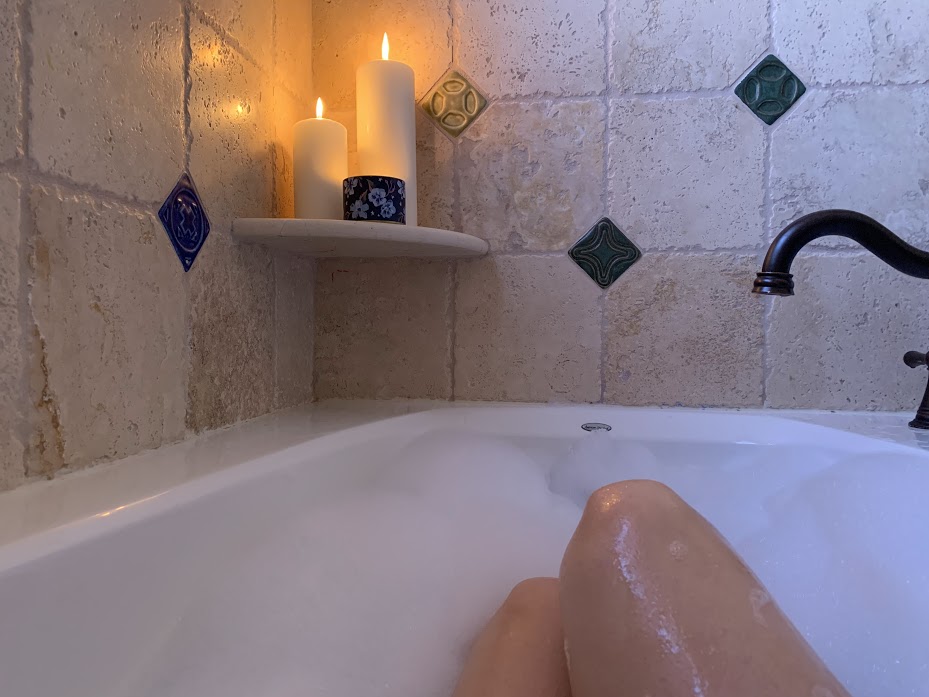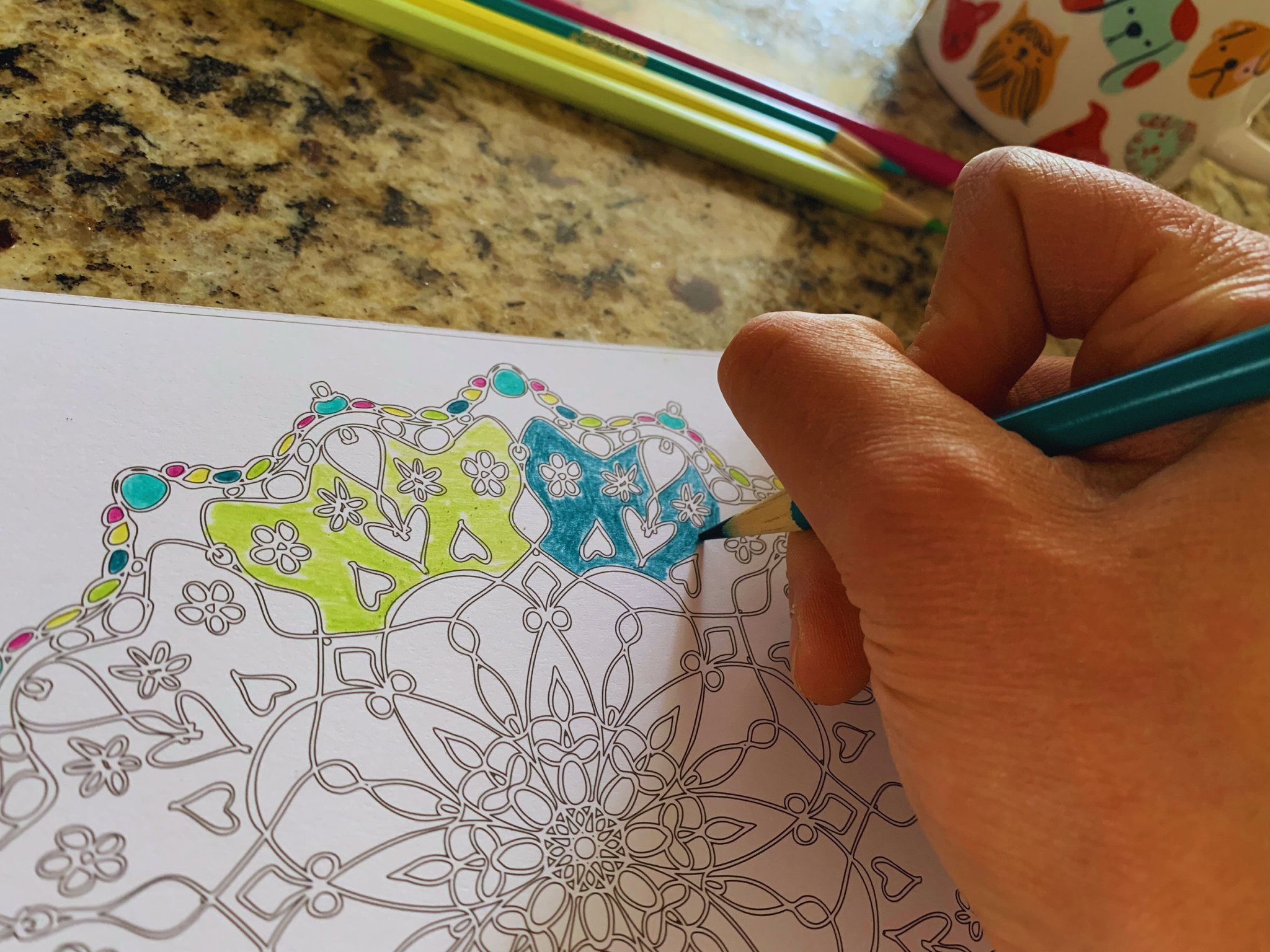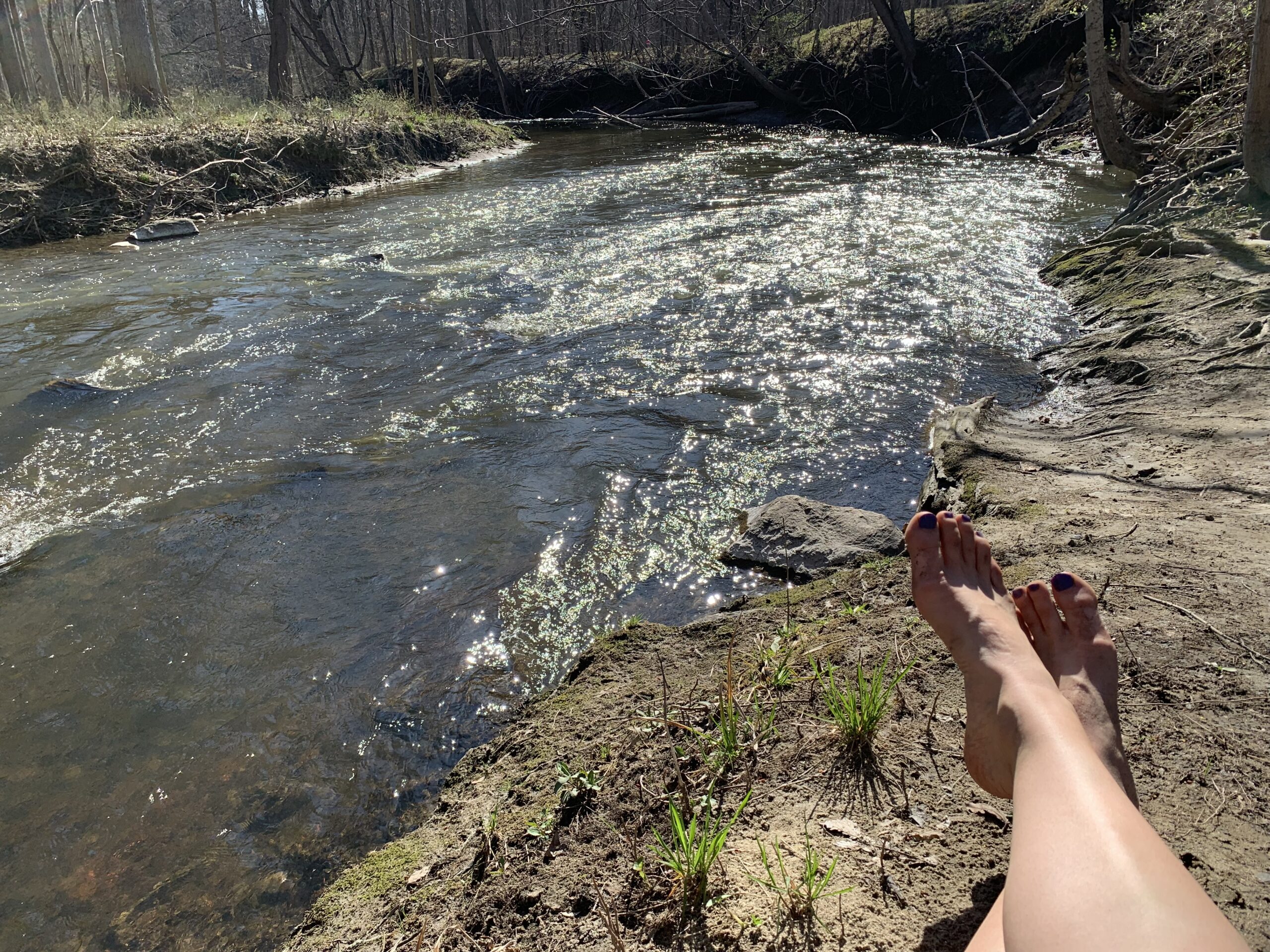Practicing self-care is especially important for Highly Sensitive People (HSPs). Your sensitive heart needs to feel strong and capable in the face of the world’s demands.
Below you will find 15 self-care habits you can begin to gently incorporate into your routine, one-by-one, to be the best version of yourself.
1. Listen to your Mind and Body
So much of self-care really is about tuning in and becoming mindful of a need. If you are tired, find a moment to rest. Are you feeling stiff? Do some stretches. If you are thirsty, drink.
It sounds so simple and intuitive. But in this fast-paced world, we are so often encouraged to shove our feelings down and hustle, or even worse, douse discomfort with quick hits of dopamine (this can come in the form of retail therapy, getting lost in the tik tok vortex, consuming drugs or alcohol, obsessively exercising, etc).
The prevailing message is not, “Listen to your mind and body.”
Sometimes it hurts to listen. Our minds and bodies give us information we need to hear. Hearing it can force us to confront realities about ourselves that are uncomfortable. If we don’t confront those realities, they do not go away. They build and manifest into mental or physical illness or breakdown, which will eventually force action anyway.
I encourage you to listen. When pain (for example) comes next time, try a Buddhist trick: Say hello to your pain.
It sounds like this:
“Hello, pain. What do you want to tell me about myself today?” Listen.
“Okay. Thank you for stopping by!”
Welcome it. Walk with it. Let it lead you to the other side. Thank it. Watch it leave you.
2. Mindfully Regulate
If you find yourself craving sugar or caffeine, maybe what you really need is a catnap or five minutes of quiet with your eyes closed.
Are you feeling sad? Skip the glass of wine and reach out to a trusted friend or a therapist to talk it out. If you are anxious, put down your phone, and use listening to allow your fear to speak to you.
Of course there is nothing wrong with indulging from time to time. But always using vices as a “cure” will cause continual spikes and dips in your physical and mental state. A more regulated state of being will leave you better prepared for life’s demands.
3. Positive Self-Talk
What is your inner voice saying about you?
If you make a mistake, do you feel shame, like something is wrong with you? Or do you look at the mistake as an opportunity to learn something? When you look at yourself in the mirror, are you complimentary? Or do you point out all of your perceived flaws?
Positive self-talk sounds simple enough, but it truly takes practice. It also takes mindful listening and reshaping.
For example, if your inner voice says, “Ugh! Why would I say that?”
Re-frame the thought to: “Oh wow. I didn’t mean for that to come out that way. I wonder why that happened. Am I overstimulated right now?” Get curious and forgive yourself. Nobody is at their best all of the time.
4. Quiet your Devices
You can’t practice listening to yourself if your phone is always notifying and entertaining you. Turn it off and tuck it away as a regular habit.
5. Establishing Relationship Boundaries
I like to think of boundaries as rules of engagement.
For example, I expect that when I share my feelings with a person, they acknowledge and respect what I have expressed. Being ignored or gaslit is painful, but as an HSP, my feelings are a huge part of how I identify with myself. If you see and respect my feelings, you see and respect me.
To establish your own rules of engagement, you first need to consider your deal-breakers. To do so, close your eyes for a moment and think of a few times when you have felt hurt by someone. Then free-write about any emotions that come up. If a pattern emerges, those are likely your deal-breakers.
6. Know your Limits
Going to parties or bars might not be your scene, and that is okay! It’s also alright (and encouraged) to sometimes step out of your comfort zone and challenge your sensitivities a little bit. However, knowing your limits helps you to know when to politely say no to certain invitations. Or, if you choose to say yes, you’ll know when to prepare an exit plan.
Most of the time, there is no need to push through exhaustion, discomfort, or overwhelm. If you aren’t having fun anymore, it is perfectly alright to go home.
My therapist told me that if I’m worried my friends or family will think I’m too sensitive, I can simply say to myself, “I am too sensitive for this right now, and that’s okay.” It’s actually liberating to own it. Being too sensitive to do something in a moment, doesn’t mean you are too sensitive to be loved.
7. Socialize your Way
It is important to remember that we are social beings. Many HSPs have had to endure so many social experiences where we just haven’t been comfortable or had any fun. It might feel like shying away from socializing altogether is the answer. But we need connection just like everyone else.
Spend time with people who understand and embrace your sensitivity. Get together for quiet coffee dates or nature walks at the park.
8. Eat When Hungry
HSPs get hangry. We are affected worse than most by dips in our blood sugar, and, as a result, our mental and physical performance suffers. We also become overstimulated more easily when we haven’t eaten. Remember, those internal hunger cues are stimulating the nervous system, too.
To combat this, I started keeping meals around that would be easy to make but would also fill me up. I drink a plant-based protein shake every morning, and I keep protein-packed snacks, frozen meals, and canned soups around at all times.
Yes, I could meal-prep, and no, pre-packaged meals are not ideal. However, I do try to source each prepared meal with intention, and I also have to remind myself that eating those quick meals is much better than eating nothing and feeling terrible.
You will find my favorites in the image below. I am not paid to endorse any of these products.

9. Hydrate
Of course we all know that drinking water is important. And, no, it’s not sexy or exciting.
However, dehydration can easily cause you to feel sluggish and headachy. Fatigue and pain are both internal sources of stimuli. Therefore, keeping hydrated is one step in the right direction toward avoiding overstimulation.
10. Exercise
Exercising raises levels of feel-good hormones, and, when done regularly, has been proven as effective as some antidepressants against minor depression. Since HSPs are more prone to depression and anxiety, it is important for us to do what we can to sustainably feel good.
I think it’s common for people to put a lot of pressure on themselves to exercise a certain way. However, the way I choose to exercise is catered to how I’m feeling at the moment. I don’t do it to get skinny or have a perfect body; but as a tool. Sometimes it means riding a stationary bike or doing some squats. Sometimes it means taking a leisurely stroll through my neighborhood. But sometimes it also means a four-mile hike.
11. Embrace Slow-Living
We all experience the demands of life. Some of us have hectic jobs or school schedules. Some have children. Perhaps you have all of the above. We have social lives and family obligations. I also think many of us choose to say yes to more invitations or responsibilities than are conducive to good health.
Be honest and ruthless. Is it possible to cut items from your to-do list? I would venture to say that the answer is yes. You are worthy of a slower pace of life. You are worthy of letting go of time-scarcity. Doing so will allow you to truly experience the abundance of simple pleasures that have always been there.
12. Say No
Saying no to people, and invitations, and obligations is saying yes to you. Choose guilt over resentment every single time.
13. Connect with Nature
Human beings are part of the natural world. Most of us are so disconnected with nature in our everyday lives that we forget that. Therefore, it is important to make an effort to remember our roots; to breathe in oxygen straight from the source. If you aren’t near a natural place, just getting outside in your neighborhood or backyard for a moment to hear the birds is a great soul-booster.

14. Have Fun
What brings you joy?
For me, it is gardening or seeing my children play together. I also like to organize and redecorate. Obviously, I enjoy writing, too.
Tune in to what makes you happy, and make time for your passions. One of HSP’s best qualities is our ability to appreciate the little things, reflect, and create. Doing a joyful activity feeds your soul. This leads to a sense of contentment, and that contentment prepares you for everything else you have to face.
15. Enjoy Stillness
Sometimes all we really need is a mind and body break. If you find that you are feeling overwhelmed or you just need a moment to breathe, try closing your eyes in a quiet space and allow your mind and body to be still.
Sometimes a silent mantra is helpful to keep your mind from racing. An example might be, “I am calm. I am peace.”
Allow your breath to flow naturally, and if your mind wanders, simply bring it back to your mantra without judgment.
A quick meditation can make a surprising difference.
I hope you are able to incorporate at least one of these self-care tips into your life. I encourage you to treat these practices like a special gift that your sweet heart so deserves.



